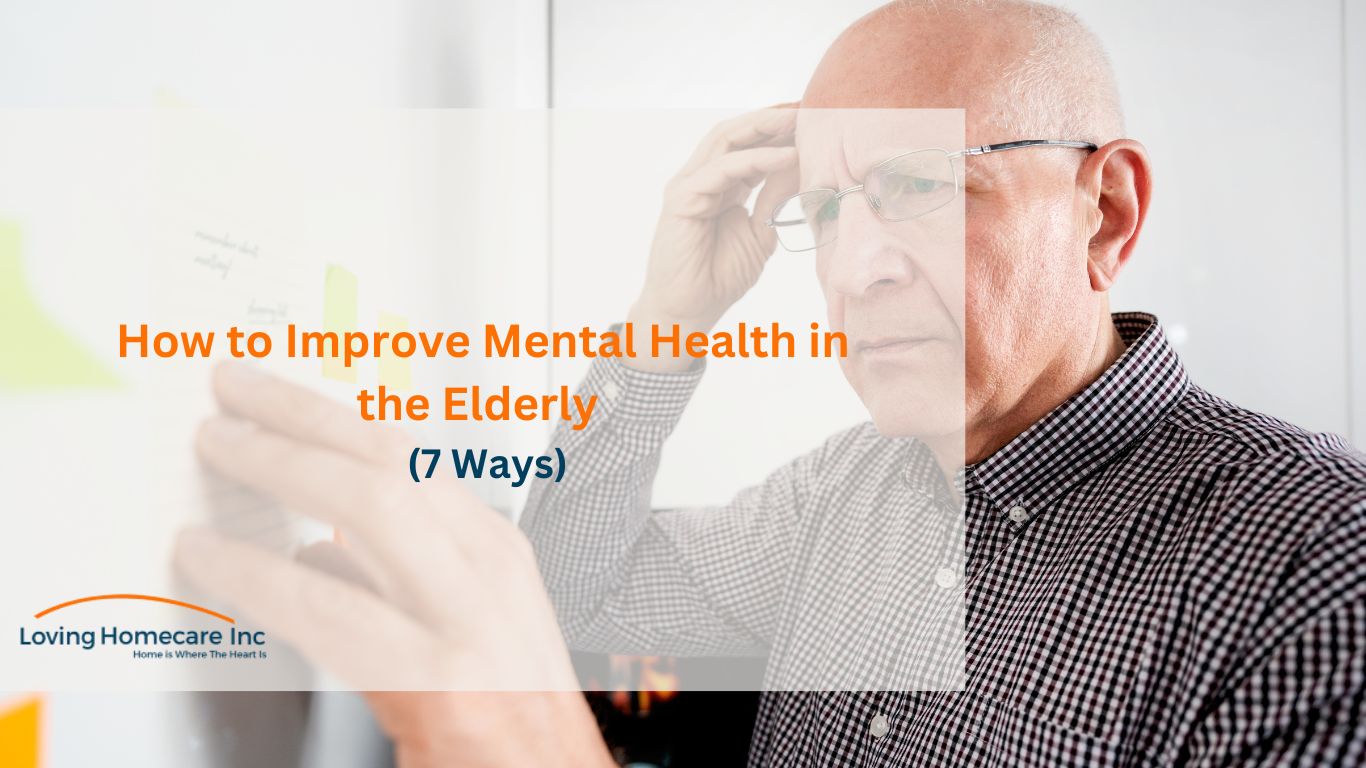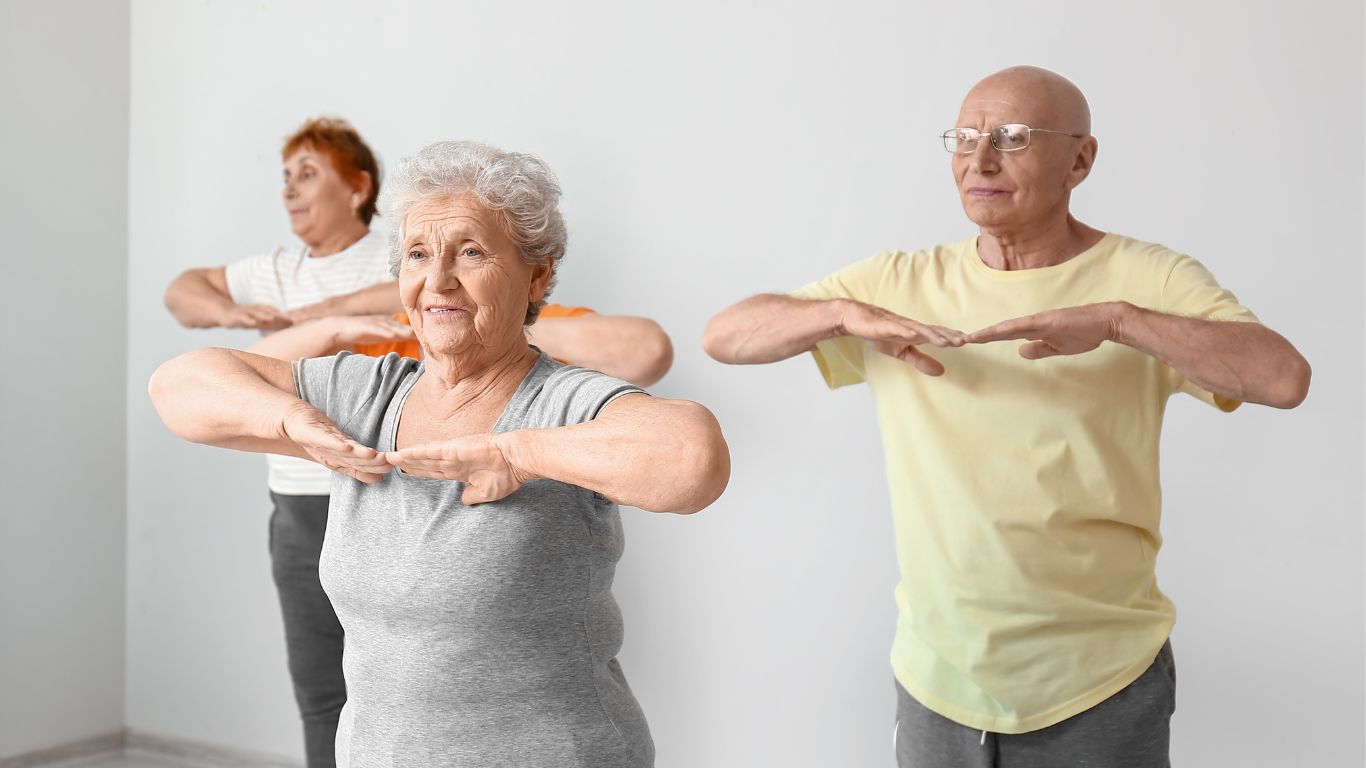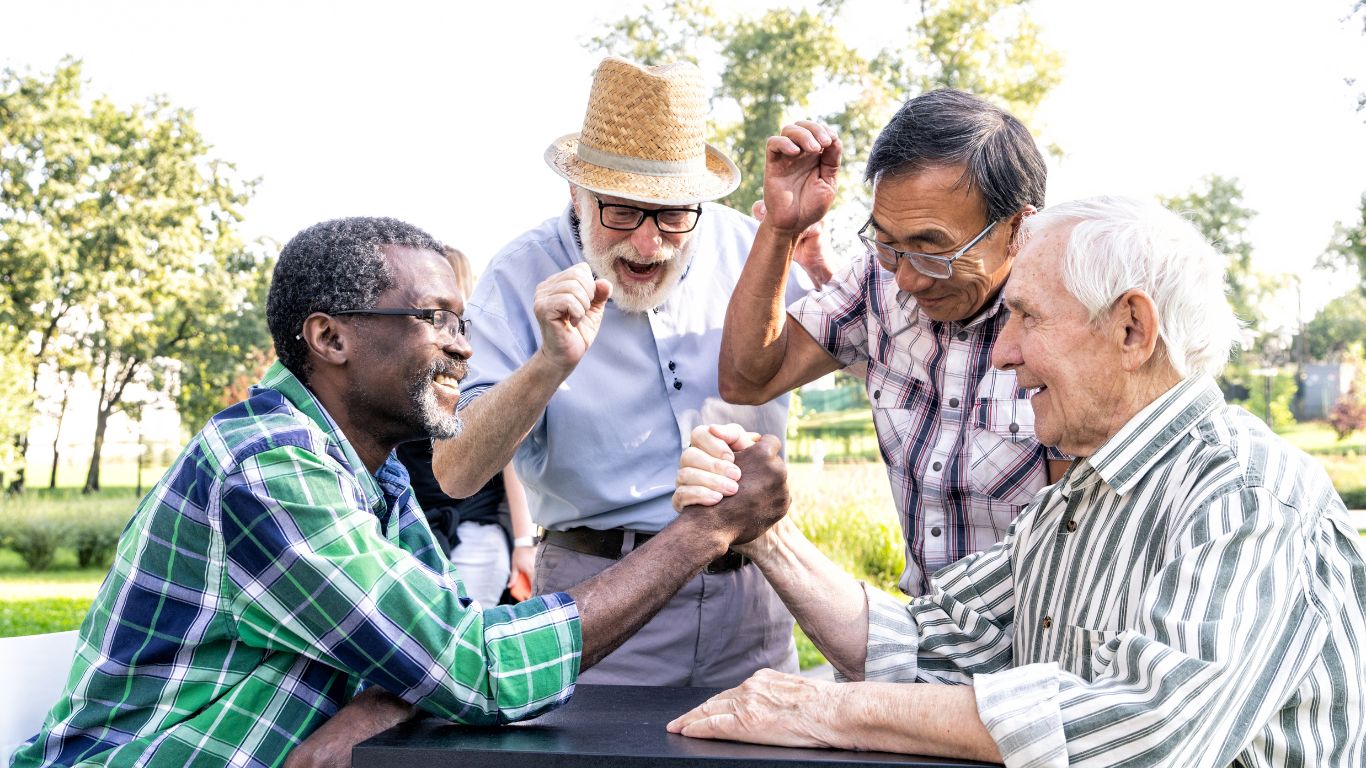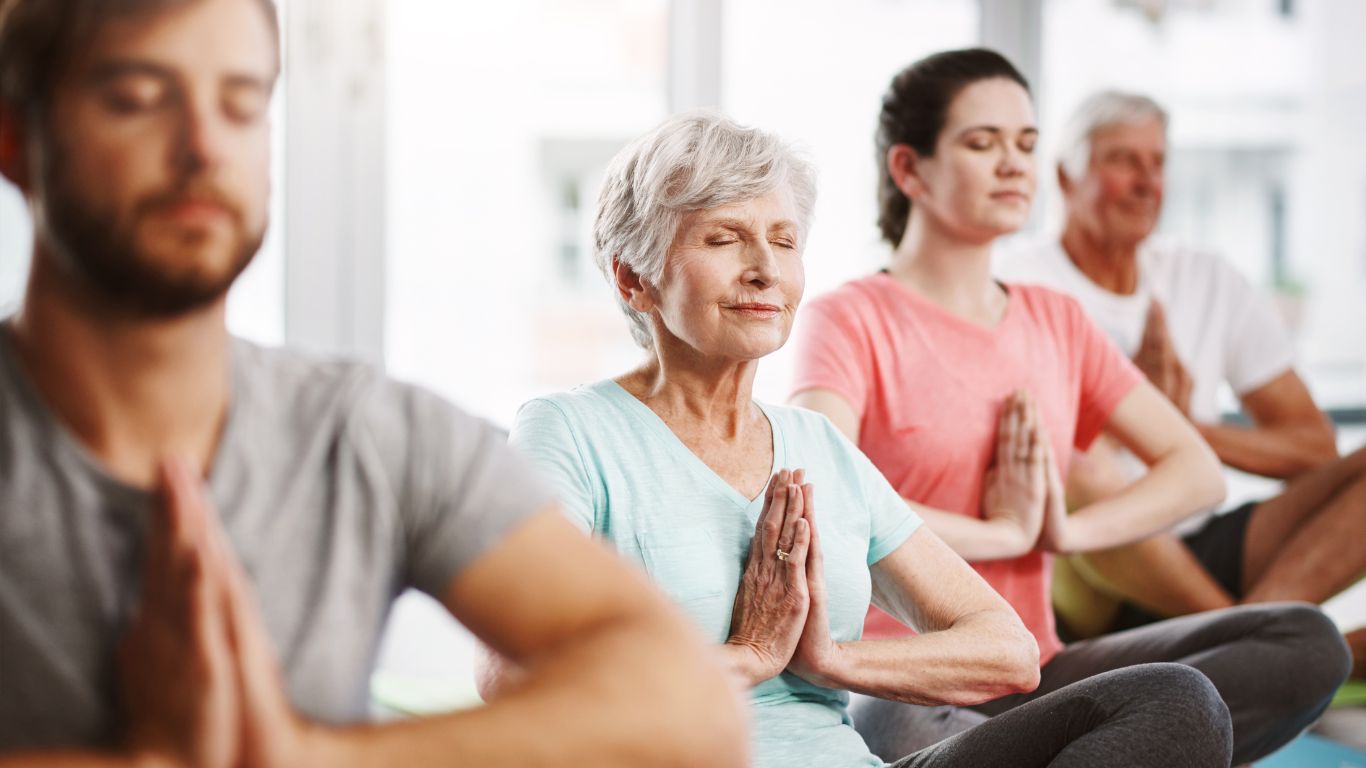Recently updated on May 30th, 2024 at 11:47 am
Amid the intricate tapestry of aging, mental health emerges as a central thread. Nowhere does its significance shine brighter than in the lives of older adults. If you have a loved one battling with aging challenges, you must be looking for ways to improve mental health.
 This article goes beyond the superficial understanding, peeling back the layers to explore the paramount importance of mental health in the senior demographic. These methods serve as keys to unlocking, revitalizing, and nurturing the delicate realm of mental well-being among the elderly population.
This article goes beyond the superficial understanding, peeling back the layers to explore the paramount importance of mental health in the senior demographic. These methods serve as keys to unlocking, revitalizing, and nurturing the delicate realm of mental well-being among the elderly population.
Importance of Improving Mental Health in Seniors:
In the realm of elderly well-being, mental health assumes a pivotal role. Its influence reaches deep into various aspects of their lives, shaping their capacity to experience fulfillment, connect with their environment, and foster relationships.
The challenges often accompany this life stage, like retirement’s restructuring, the weight of losing dear ones, and the constraints of physical limitations, can converge to sow seeds of isolation, melancholy, and apprehension. These emotional struggles are not uncommon, but they need not define the elderly experience.
Proactively addressing mental health is a potent strategy to enrich the lives of seniors. By recognizing the significance of mental well-being and seeking ways to nourish it, seniors can unlock an elevated quality of life. This approach cultivates emotional resilience, enabling seniors to navigate life’s complexities with a more positive outlook, enhanced social connections, and a stronger sense of purpose.
By embracing mental health as a priority, older people can pave the way for a rewarding and meaningful journey through their golden years.
7 In-Depth Approaches for Mental Health Improvement in the Elderly:
Engage in Regular Physical Exercise:

Physical exercise acts as a tonic, benefiting both the body and the mind. Its impact on mental well-being is significant. Seniors engaging in regular physical activity experience the release of endorphins—natural mood enhancers. These chemicals uplift spirits, fostering emotional equilibrium.
Tailored physical exercises offer a path to enhanced mood and cognitive function. Invigorating morning walks infuse vitality, while yoga’s rhythmic grace soothes the mind. Exercise also boosts blood flow to the brain, supporting cognitive health. This increased cerebral circulation contributes to sharper faculties and fortified mental resilience. How exercise improves mental health is amazing.
In embracing physical exercise, seniors journey toward nurturing physical vitality and mental vigor. This journey taps into the body-mind connection, uplifting spirits, nurturing the psyche, and empowering cognitive landscapes. Regular physical exercise is an effective way to improve mental health.
Hopefully, this answers your Faq: mental and emotional health can be improved through exercise.
Embrace a Nutrient-Rich, Balanced Diet:

A balanced diet that includes whole grains, lean proteins, healthy fats, and a variety of nutrient-dense foods lays the foundation for cognitive vitality. Hydration is equally crucial, as even mild dehydration can affect mood and cognitive performance. By nourishing the body with wholesome foods and staying hydrated, seniors provide their brains with the building blocks needed for optimal mental health.
Developing eating habits to improve mental health can do wonders for the overall well-being of your older loved ones.
Cultivate and Sustain Social Connections:

Meaningful interactions with family, friends, and community groups provide a sense of belonging and purpose. These connections offer emotional support, reducing feelings of loneliness and isolation.
Engaging in social activities, volunteering, or participating in clubs tailored to their interests can enrich seniors’ lives with a strong sense of community. Sharing experiences, laughter, and even the occasional challenge among friends bolster mental resilience.
Seniors who actively nurture their social connections often enjoy a heightened sense of well-being and a more positive outlook on life. It is one of the best ways to improve your mental health!
Fun Activities to Improve Mental Health and Cognition:

Participating in creative endeavors such as painting, writing, or crafting also engages different areas of the brain. Engaging in diverse activities prevents cognitive stagnation and contributes to the growth of cognitive reserves. By embracing these activities, seniors can embark on a journey of lifelong learning and mental vibrancy.
These things to do to improve mental health are effective; however, consistency is the key.
Explore Mindfulness and Meditation Practices:

Mindfulness encourages seniors to appreciate the small joys of life, savoring experiences with heightened awareness. Conversely, meditation promotes relaxation through deep breathing, guiding the mind away from stressors. These practices not only reduce anxiety and depression but are also essential for dementia & Alzheimer’s Care.
Seniors can integrate mindfulness into daily routines by savoring meals, taking leisurely walks, or spending quality time with loved ones. Formal meditation sessions, even for a few minutes a day, can yield significant benefits for mental health. By cultivating mindfulness and meditation practices, seniors create a sanctuary of calm amidst life’s challenges.
Prioritize Sleep Hygiene for Quality Rest:

Creating a comfortable sleep environment involves regulating light exposure, maintaining a consistent sleep schedule, and ensuring a comfortable mattress and pillows. Seniors should establish a bedtime routine that promotes relaxation, such as reading or gentle stretching. Limiting caffeine and screen time before bed is also important, as they can disrupt sleep quality.
Aim for 7-9 hours of uninterrupted sleep each night. Adequate sleep fosters memory consolidation, emotional resilience, and cognitive sharpness. By prioritizing sleep hygiene, seniors gift themselves the opportunity for rejuvenation and mental refreshment.
It is one of the notably practical tips to improve mental health in seniors. If you are wondering how to improve your mental health as a caregiver, it can work for you too.
Access Professional Support When Needed:

Regular check-ins with healthcare providers ensure that mental health remains a priority. Medication can also be a valuable tool in managing certain conditions if deemed necessary. Family members and caregivers can play a crucial role in supporting seniors’ mental health journey by providing encouragement, attending appointments, and fostering open communication.
Moreover, being a caregiver can often be an overwhelming experience, no matter how hard you try. It may leave you thinking about how can i improve my mental and emotional health while taking care of my loved one. Getting professional help can benefit you equally.
In a Nutshell:
Elderly mental health is a tapestry woven with care, each thread contributing to resilience and well-being. Seniors fortify their mental health journey by immersing themselves in physical activity, embracing a nourishing diet, nurturing social connections, engaging in cognitive pursuits, exploring mindfulness, prioritizing sleep, and seeking professional support.
When interlaced with mental vitality, the golden years radiate as a testament to the power of nurturing the mind as gracefully as the body. In embracing these methodologies, seniors honor their past and pave the way for a fulfilling and resilient future.
Moreover, if you are finding it challenging to be a apt caregiver consider hiring home care assistance or companion care for the elderly services from Loving Homecare. It will be the best way to improved quality of life for your loved ones!


